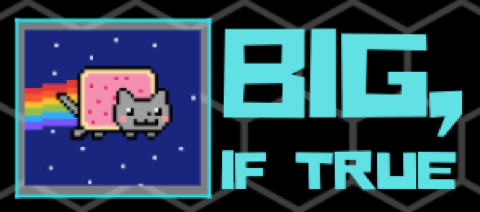On February 3rd, 2021, the Shorenstein Center hosted a Big, If True Webinar on community understandings of networked hate groups and conspiracies with guests Brandi Collins-Dexter, Molly Conger, Emily Gorcenski, Kathleen Belew, PhD, and Whitney Phillips, PhD, hosted by Joan Donovan, PhD.
Our panelists discussed: how can journalists contextualize hate movements for a broader public without amplifying their agendas? How can civil society organizations collaborate with journalists to source better stories? And in what ways can researchers build capacity across sectors so that civil society organizations and journalists understand the role of technology in the rise of hate movements? In the battle to combat misinformation, researchers have offered clear advice for how journalists should cover and debunk it, but we have very provided little guidance for how civil society should counter media manipulation and disinformation campaigns. The lack of attention to civil society responses is a major gap in the research and it’s becoming increasingly clear that the guidance for journalists does not translate easily to civil society.
You can find a recording of the conversation below:
Brandi Dexter-Collins is a Senior Research Fellow at the Shorenstein Center. Brandi researches and writes about disinformation and coordinated attacks on Black technoculture. As a former senior campaign director at Color Of Change (COC), her work involved interrogating the role of media, technology and information integrity in improving or deteriorating community health and economic opportunities.
Molly Conger is an independent journalist covering municipal government in Charlottesville, VA and a far right researcher. When she’s not sitting through city board meetings or sifting through neo nazi forums, she enjoys spending time with her two dachshunds, Otto and Buck.
Whitney Phillips is an Assistant Professor in the Department of Communication and Rhetorical Studies at Syracuse University. Whitney Phillips researches and teaches classes on media literacy, mis-and disinformation, political communication, and digital ethics, including journalistic ethics and the ethics of everyday social media use.
Emily Gorcenski is a data scientist and engineer and activist. A ten-year resident of Charlottesville, Virginia, she is a survivor of the neo-Nazi violence that besieged the city in 2017. Combining these experiences with her technical background, she created First Vigil, a multimedia data project designed to combat the rise of fascism with information. For her efforts, she was named one of Bitch Magazine’s Most Influential Feminists of 2018, and continues to engage in data journalism against the far right from her new home in Berlin, Germany.
Kathleen Belew is a historian, author, and teacher. She specializes in the history of the present. She spent ten years researching and writing her first book, Bring the War Home: The White Power Movement and Paramilitary America (Harvard, 2018, paperback 2019). In it, she uses previously classified FBI documents and vivid personal testimonies to explore how white power activists created a social movement through a common story about betrayal by the government, war, and its weapons, uniforms, and technologies.
Hosted by Joan Donovan, PhD, Big, If True is a seminar series presented by the Technology and Social Change Research Project (TaSC) at the Shorenstein Center. Dr. Donovan’s research specializes in Critical Internet Studies, Science and Technology Studies, and the Sociology of Social Movements. Dr. Donovan’s research and expertise has been showcased in a wide array of media outlets including NPR, Washington Post, The New York Times, Rolling Stone, ABC News, NBC News, Columbia Journalism Review, The Atlantic, Nature, and more. In 2020, the TaSC team launched the The Media Manipulation Casebook, a digital research platform linking together theory, methods, and practice for mapping media manipulation and disinformation campaigns. This resource is intended for researchers, journalists, technologists, policymakers, educators, and civil society organizers who want to learn about detecting, documenting, describing, and debunking misinformation.
Want to keep up with what TaSC is seeing week to week? Sign up for their newsletter, Meme War Weekly, and get fresh insights from the team straight to your inbox.


